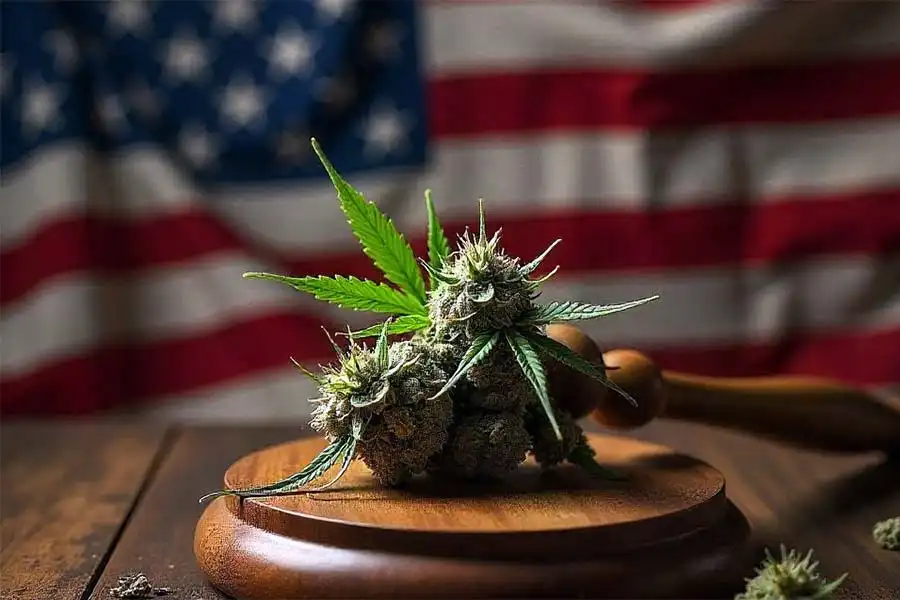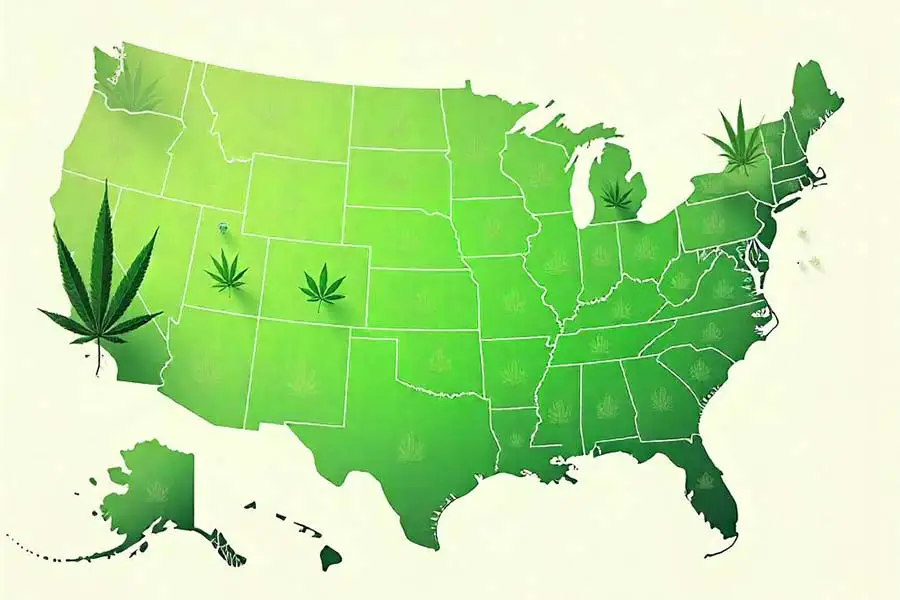
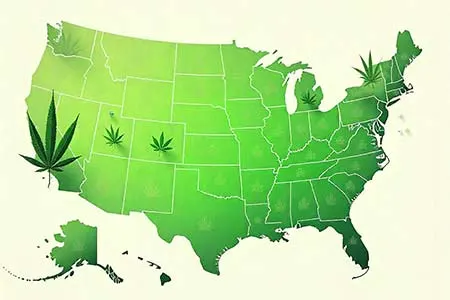
As marijuana laws continue to evolve across the U.S., dispensaries need to stay informed about regulatory changes. In 2025, each state has its own set of rules that can significantly impact the cannabis industry. In this blog, we’ll explore marijuana laws by state, highlighting key updates you need to know.
1. Alabama

In 2025, Alabama fully implemented its medical marijuana program, allowing licensed dispensaries to sell products to qualified patients. The state is beginning to explore further regulations, including expanding the number of qualifying conditions for medical cannabis use. However, recreational cannabis remains illegal, and advocates are still pushing for change.
2. Alaska
Alaska’s marijuana laws continue to evolve, and in 2025, the state is focusing on improving regulatory oversight for dispensaries. Alaska has legalized both medical and recreational marijuana, and dispensaries are required to follow strict testing and packaging rules. However, there are still challenges regarding product availability and taxation. The state is also exploring new avenues for cannabis tourism.
3. Arizona
Arizona legalized recreational marijuana in 2020, and in 2025, dispensaries continue to experience significant growth. The state has made improvements in its licensing system, making it easier for entrepreneurs to open cannabis businesses. Marijuana taxation has been adjusted to fund state programs, and Arizona is considering introducing new consumption lounges and delivery services.
4. Arkansas
Arkansas’ medical marijuana program has grown significantly since its inception. In 2025, more patients will qualify for medical cannabis, and dispensaries are seeing a growing number of new customers. However, recreational marijuana remains illegal. The state is expected to review its medical marijuana regulations to streamline the process for patients and ensure access to quality products.
5. California
California will remain a leader in cannabis regulation in 2025. The state continues to refine its medical and recreational cannabis laws, focusing on issues such as tax reform, cultivation taxes, and equitable access for marginalized communities. Dispensaries are being held to higher compliance standards, including changes in testing and packaging. California’s cannabis market is one of the largest in the country.
6. Colorado

Colorado has a long history of marijuana legalization and is refining its laws in 2025 with an emphasis on social equity and consumer safety. Dispensaries will face stricter regulations for product testing and labeling. The state is also working on expanding cannabis education programs for both consumers and businesses. Colorado’s cannabis tourism continues to thrive.
7. Connecticut
In 2025, Connecticut’s recreational cannabis market is expanding rapidly. Dispensaries are seeing increased foot traffic, especially in major urban centers like Hartford and New Haven. The state has introduced additional regulations to ensure that cannabis consumption does not negatively impact public safety. Additionally, Connecticut is working on social equity programs to provide more opportunities for communities historically affected by the War on Drugs.
8. Delaware
Delaware has legalized both medical and recreational cannabis. In 2025, the state is working on improving its infrastructure for cannabis businesses. Dispensaries are required to comply with strict product safety standards and reporting regulations. Delaware is also exploring tax incentives to help small cannabis businesses thrive, and consumer demand continues to grow as new dispensaries open.
9. Florida
Florida has a well-established medical marijuana program, and in 2025, more patients are gaining access to cannabis products. However, recreational marijuana remains illegal, with lawmakers continuing to debate its potential legalization. Dispensaries are expanding across the state, and Florida is seeing growth in the cannabis market as the medical program is refined to include more qualifying conditions.
10. Georgia
Georgia legalized medical marijuana in 2021, but the state’s program has been slow to roll out. In 2025, the state is working to increase patient access to medical cannabis and has begun issuing more licenses for dispensaries. However, recreational marijuana remains illegal, and advocates are pushing for broader legalization. Georgia’s cannabis program is still in its early stages but is expected to grow in the coming years.
11. Hawaii

Hawaii has legalized both medical and recreational cannabis. In 2025, the state is focusing on making the cannabis market more accessible and inclusive, with new programs for minority-owned businesses and social equity. Hawaii also continues to refine its cannabis taxation and licensing processes, creating a more streamlined environment for dispensaries to operate and for consumers to access products.
12. Idaho
Idaho has some of the most restrictive marijuana laws in the country. Medical marijuana remains illegal, and recreational cannabis is still prohibited. However, advocates are pushing for medical legalization, with some legislative efforts gaining traction in 2025. If passed, this would create a medical cannabis program that could allow dispensaries to open in the state in the future.
13. Illinois
Illinois has a robust cannabis market, and by 2025, the state will continue to make improvements in its legal framework. The focus in Illinois is on expanding access to cannabis for both recreational and medical users, with efforts to increase social equity licensing. Dispensaries are growing in number, and the state is working on improving the supply chain to meet growing demand.
14. Indiana
Indiana has been slow to adopt marijuana legalization, but in 2025, there is renewed interest in medical cannabis. While recreational marijuana remains illegal, legislators are working on proposals for a medical marijuana program. Dispensaries are still not operating in the state, but there is growing pressure for change, especially as neighboring states push for marijuana reform.
15. Iowa
Iowa’s medical marijuana program remains limited in 2025, and recreational cannabis is still prohibited. However, the state continues to expand the list of qualifying conditions for medical marijuana use. In 2025, there is a push to introduce more dispensaries, though access remains restricted compared to states with more comprehensive cannabis programs.
16. Kansas

Kansas has not yet legalized recreational marijuana, and its medical marijuana program remains underdeveloped. In 2025, there are ongoing efforts to introduce medical cannabis legislation, but the state is still a long way from fully embracing marijuana reform. Dispensaries remain illegal, but advocates are optimistic that momentum is building for future change.
17. Kentucky
Kentucky has made strides toward marijuana legalization, with a medical marijuana program set to fully roll out in 2025. The state’s cannabis market is expected to see significant growth, with new dispensaries opening to serve patients. However, recreational marijuana remains illegal, and the focus for 2025 will be on ensuring the medical program is well-implemented and accessible to those in need.
18. Louisiana
Louisiana has a medical marijuana program that has been expanding since its launch. In 2025, more patients will have access to cannabis products, and dispensaries are expected to see increased demand. Recreational marijuana remains illegal, but the state is working to improve the medical marijuana program, including reducing the barriers to entry for patients and healthcare providers.
19. Maine
Maine has a fully legalized marijuana program, and by 2025, the state will continue to make adjustments to its cannabis regulations. Dispensaries are operating in both medical and recreational markets, with growing demand for both. In 2025, Maine is expected to further refine its cultivation and retail rules, focusing on sustainable practices and equity.
20. Maryland
Maryland’s marijuana market has been expanding since the legalization of recreational cannabis in 2023. By 2025, dispensaries are fully operational, and the state is refining its cannabis laws to ensure equitable access for all communities. Maryland is also considering new tax laws and how to address concerns about cannabis tourism and the effects on local communities.
21. Massachusetts
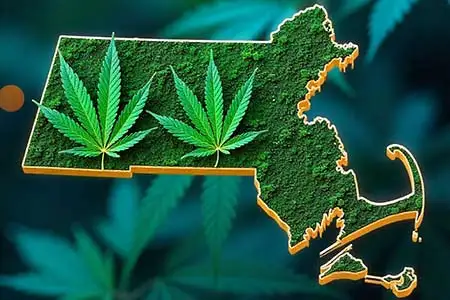
Massachusetts remains one of the leading states in cannabis legalization. In 2025, the state will continue to expand its recreational marijuana program, focusing on delivery services and social equity licensing. Dispensaries are growing in number, and Massachusetts is working on making cannabis available in a variety of formats, including edibles and concentrates.
22. Michigan
Michigan has been a leader in cannabis reform, and by 2025, the state is focusing on expanding access to marijuana for both medical and recreational users. Dispensaries are seeing increased demand, and the state is refining its product testing and packaging standards. Michigan is also focusing on cannabis sustainability and environmentally friendly practices for growers.
23. Minnesota
Minnesota’s medical marijuana program continues to expand, and recreational marijuana is now under discussion. In 2025, lawmakers are pushing to legalize recreational cannabis, which would open the door for new dispensaries and increased access to cannabis products. Minnesota is expected to introduce more comprehensive cannabis legislation in 2025.
24. Mississippi
Mississippi legalized medical marijuana in 2022, and by 2025, the state has continued to refine its program. Dispensaries are opening across the state, although access to medical cannabis remains limited compared to other states. Efforts to expand the program and introduce new regulations are ongoing, with the goal of increasing patient access and ensuring high-quality products. Recreational marijuana remains illegal in the state.
25. Missouri
Missouri’s recreational cannabis market has been booming since its legalization in 2022. In 2025, we expect dispensaries to be thriving in both medical and recreational markets. The state is focusing on increasing equity in the cannabis industry, with new programs designed to help minorities and those affected by previous marijuana laws. Missouri’s cannabis taxes continue to support social programs, including education and healthcare.
26. Montana

Montana legalized recreational marijuana in 2020, and by 2025, the state has fully implemented its cannabis regulations. Dispensaries are operating under strict compliance rules, focusing on consumer safety and sustainable practices. Montana is working on expanding its cannabis tourism sector, and local markets are seeing continued growth in product variety and availability.
27. Nebraska
While Nebraska has not legalized recreational marijuana, there is increasing pressure to expand medical marijuana access. In 2025, the state is still grappling with marijuana reform, but advocates are optimistic that medical cannabis will become more widely available. Legislative efforts continue, with discussions about how to establish a regulatory framework for future marijuana legalization.
28. Nevada
Nevada has been a leader in recreational cannabis legalization, and in 2025, the state will continue to fine-tune its laws. Dispensaries are flourishing, especially in Las Vegas, where cannabis tourism plays a large role. Nevada is exploring new licensing opportunities and ways to further diversify its cannabis market, including delivery services and cannabis lounges.
29. New Hampshire
New Hampshire has not yet legalized recreational marijuana, but medical marijuana has been legal since 2013. In 2025, there is growing support for recreational cannabis legalization, and some lawmakers are pushing for reform. Dispensaries are serving medical patients, and there is increasing interest in expanding the cannabis market as support for legalization grows.
30. New Jersey
New Jersey legalized recreational marijuana in 2020, and by 2025, the state has continued to expand its cannabis market. Dispensaries are flourishing, especially in cities like Newark and Jersey City. The state is working to improve social equity by offering business licenses to communities most affected by the War on Drugs, and they are exploring additional consumption lounges.
31. New Mexico

New Mexico has fully embraced recreational marijuana, legalizing it in 2021. By 2025, the state’s cannabis market is growing rapidly, with dispensaries expanding across the state. New Mexico is focusing on increasing equity in cannabis business ownership and creating a sustainable market. Cannabis taxes are being reinvested into local communities to support public health initiatives.
32. New York
New York legalized recreational cannabis in 2021, and by 2025, the state has made significant strides in building a comprehensive cannabis market. Dispensaries are proliferating, especially in urban areas like New York City. New York is focused on equity programs to assist people from communities most impacted by previous marijuana laws, ensuring that those individuals have opportunities in the cannabis industry.
33. North Carolina
North Carolina has not legalized medical or recreational marijuana. As of the end of 2024, the Cherokee Indians made marijuana in their own lands, which are governed by their laws. Advocates are working hard to push for legalization, but the state’s focus remains on medical marijuana with possible expansion in the coming years.
34. North Dakota
North Dakota has not legalized recreational marijuana, but it does have a limited medical marijuana program in place. In 2025, the state is working to expand its medical marijuana program and improve patient access. Advocates continue to push for recreational cannabis legalization, but the state remains cautious, with ongoing discussions about the program’s future.
35. Ohio
Ohio has legalized recreational and medical marijuana, and in 2025, the state’s program will continue to grow. Dispensaries are expanding their reach across the state, although recreational marijuana remains illegal. The state is looking at ways to expand medical marijuana access, with increasing support for recreational legalization. In 2025, lawmakers are working to introduce a new cannabis reform bill.
36. Oklahoma
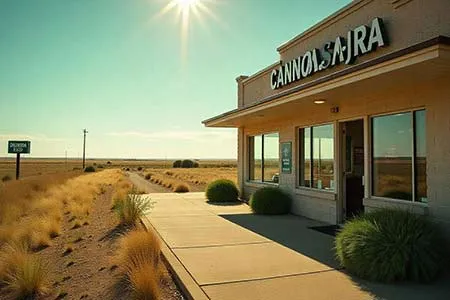
Oklahoma has a thriving medical marijuana market, with dispensaries operating statewide. In 2025, the state has also seen growing discussions around recreational marijuana legalization, though it remains illegal for now. Oklahoma is expected to review its medical marijuana policies to make access easier for patients and streamline regulations for dispensaries.
37. Oregon
Oregon has long been a leader in cannabis legalization, and it continues to refine its policies. Recreational cannabis remains legal, and dispensaries are flourishing throughout the state. Oregon is focusing on sustainable cannabis cultivation practices and expanding its cannabis tourism industry. The state also continues to address concerns over the black market and taxation.
38. Pennsylvania
Pennsylvania has a medical marijuana program, but recreational cannabis remains illegal. In 2025, medical marijuana will be more accessible to patients, with more dispensaries opening across the state. There are ongoing efforts to legalize recreational marijuana, and public support for cannabis reform continues to grow. Lawmakers are working on expanding the medical cannabis program and considering changes to legalization.
39. Rhode Island
Rhode Island legalized recreational marijuana in 2022, and dispensaries are thriving, with many opening across the state. The state is focusing on creating an equitable market and addressing concerns over taxation. Rhode Island is working to streamline its regulatory framework for cannabis businesses, with an emphasis on sustainable cultivation and social equity.
40. South Carolina
South Carolina has a limited medical marijuana program, and recreational marijuana remains illegal. By 2025, the state is considering expanding its medical marijuana program and is also seeing a growing movement to legalize recreational cannabis. Discussions are underway about how to implement new laws for both medical and recreational marijuana, though changes are expected to be gradual.
41. South Dakota

South Dakota legalized recreational marijuana in 2020, but its laws have faced challenges and changes. In 2025, the state’s cannabis market is still maturing, with some dispensaries in operation but regulatory hurdles still in place. South Dakota is considering changes to improve cannabis accessibility and is exploring more ways to generate tax revenue from the legal cannabis industry.
42. Tennessee
Tennessee has not yet legalized recreational marijuana, and its medical marijuana program remains in its infancy. In 2025, there are efforts to expand access to recreational and medical marijuana, with lawmakers discussing potential changes to existing laws. While the state has made little progress on recreational cannabis, there is growing public support for reform in the future.
43. Texas
Texas has a limited medical marijuana program, and recreational cannabis remains illegal. The state is working on expanding its medical marijuana program to include more conditions and increase patient access. The push for recreational legalization continues, with significant debate among lawmakers and advocates pushing for broader reform in the coming years.
44. Utah
Utah’s medical marijuana program has been operational since 2020, and by 2025, it will continue to grow with increased patient access. Dispensaries are expanding, but recreational marijuana remains illegal. The state is looking into further regulation adjustments, including expanding the list of qualifying medical conditions. Utah has a growing interest in social equity for cannabis businesses.
45. Vermont
Vermont legalized recreational marijuana in 2018, and by 2025, the state has refined its cannabis laws, including delivery services and consumption lounges. Dispensaries continue to expand, and Vermont is focusing on creating an equitable market that provides opportunities for marginalized communities. The state is also exploring sustainable cannabis cultivation practices to protect the environment.
46. Virginia

Virginia legalized recreational marijuana in 2021, and in 2025, the state continues to grow its cannabis market. Dispensaries are flourishing, with a focus on social equity and ensuring opportunities for disadvantaged communities. Virginia is working on improving its cannabis tourism industry and expanding legal cannabis access throughout the state.
47. Washington
Washington remains a pioneer in cannabis legalization. The state’s legal cannabis market continues to thrive, with dispensaries offering a wide range of products. Washington is refining its cannabis laws, focusing on equitable access, taxation, and sustainability. The state also continues to address challenges related to the black market and product testing.
48. West Virginia
West Virginia’s medical marijuana program continues to expand in 2025, and recreational cannabis remains illegal. The state is focused on increasing access for patients and improving its dispensary system. While efforts to legalize recreational marijuana are ongoing, West Virginia’s cannabis market is expected to grow as more dispensaries open to meet the needs of medical patients.
49. Wisconsin
Wisconsin has not yet legalized recreational marijuana, and its medical marijuana program is still limited. However, in 2025, there is growing support for marijuana reform. Advocates continue to push for medical marijuana expansion and recreational legalization. If passed, Wisconsin will likely see new dispensaries and significant growth in its cannabis market.
50. Wyoming

Wyoming has one of the most restrictive marijuana laws in the U.S., with both recreational and medical marijuana remaining illegal in 2025. However, there is increasing pressure for change, and advocates are working to push for medical marijuana legalization. Until then, Wyoming’s cannabis market remains restricted, with no dispensaries in operation.
Conclusion
As marijuana laws continue to evolve in 2025, staying informed about the changes in each state is crucial for dispensaries and cannabis entrepreneurs. Whether you’re navigating new regulations in established markets like California and Colorado or entering emerging markets in states like Alabama and Georgia, understanding marijuana laws is essential to ensure compliance, capitalize on opportunities, and plan for the future of your business.
Leveraging innovative solutions with VFI Technology can help dispensaries streamline operations, stay compliant, and optimize their business strategies. Keeping up with state-specific marijuana laws—along with advancements in cannabis technology—will help dispensaries adapt, thrive, and contribute to the responsible growth of the cannabis industry across the United States.
Contact us for a discussion on creating your dispensary’s online presence.



